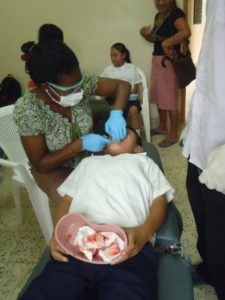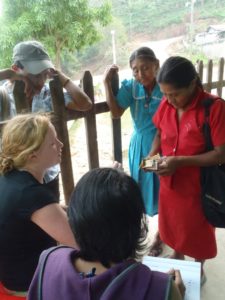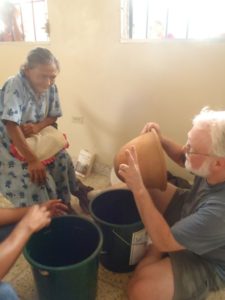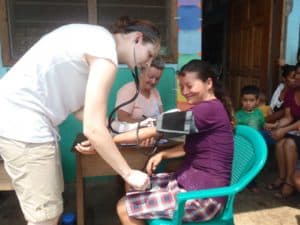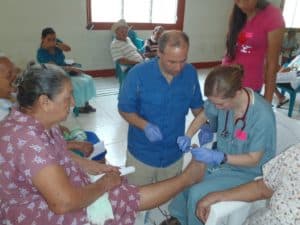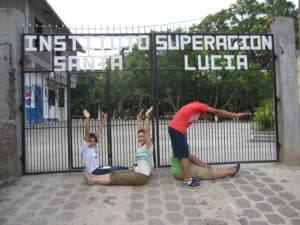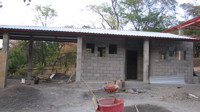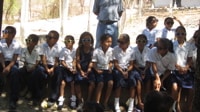The University of Rochester kept busy on their 1stof 2 yearly visits to the small town of San Jose. They spent 10 days enjoying the amazing views and doing everything from sex-
education to pulling teeth. They were a well-equipped team of 11; 2 attendings, 1 dentist and one dental student, 5 medical residents, a photographer and a church representative who works on their local scholarship program.
The group worked around the clock seeing patients, both medical and dental, as well as holding various mini-lectures for the local midwives and scholarship students. In addition, the team group had a chance to show off their theater skills in their skits about money management for their loan program. The dentists kept busy with a constant line of patients as well as hiking to the surrounding schools to check-up on their fluoride program. The photographer captured everyday life in San Jose and quickly became the most popular team member among the local kids who were eager to pose for portraits. Thanks to everyone for all of your hard work and we are excited to see you in October!
“I grew as a person, as a physician, as a leader and as team member, thanks!”
“So welcoming and everyone, from the translators to the brigade volunteers. They were always there, willing, pleasant, answering my questions and sharing stories. Wonderfully friendly”
“Great opportunity to work and gain experience in Global health”
“Translators were excellent – Raul, Alex, Paulett and Ed, all extremely helpful. Kate and Maggie were superb!”
